The benefits of drinking herbal tea have been touted for thousands of years, but what are the facts? Read on to find out!
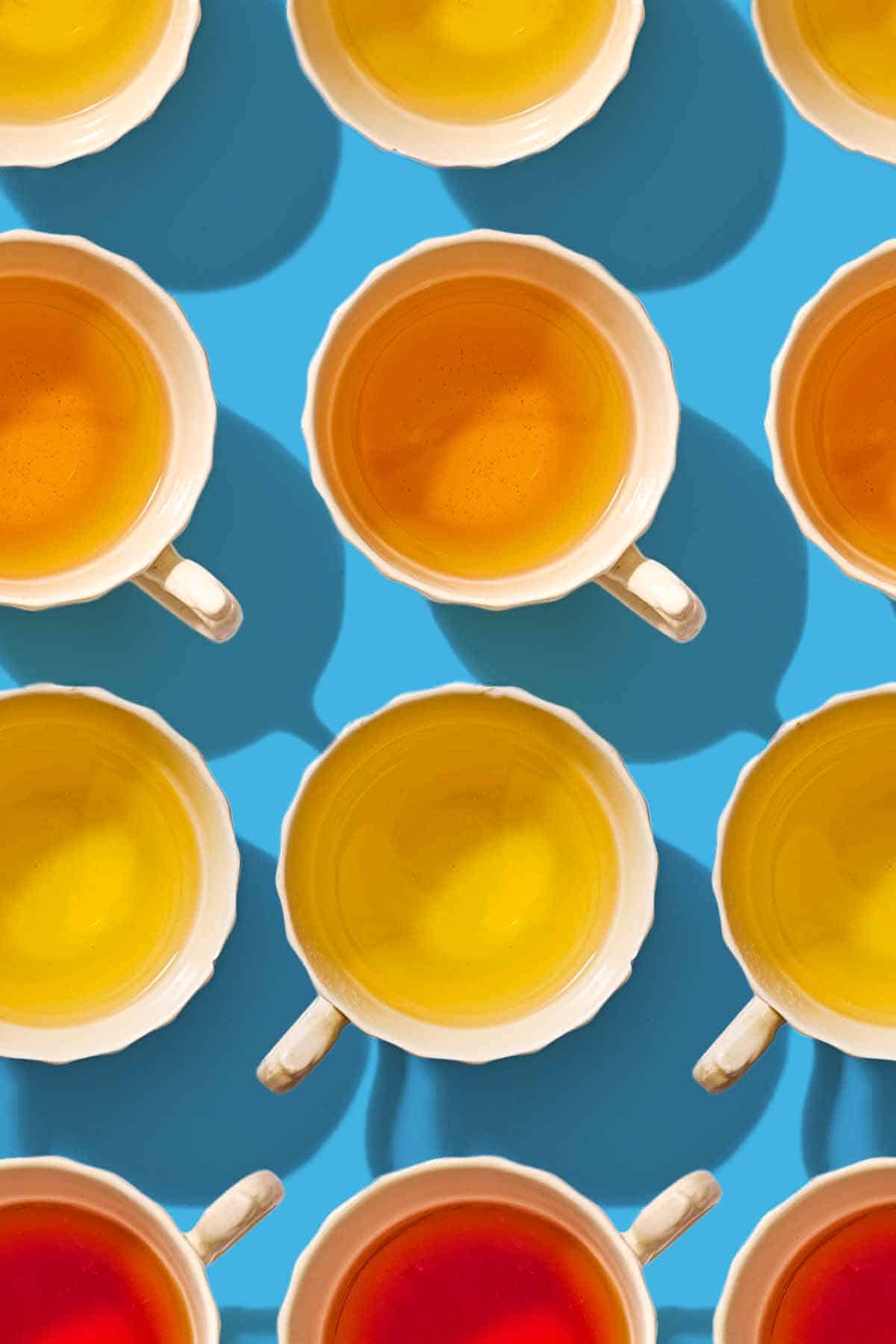
The simple act of making a cup of herbal tea instantly signals a moment to pause, breathe, and relax. Its warmth is an invitation to slow down and be present. But are there benefits of drinking herbal tea beyond a fleeting moment of calm?
For centuries, cultures around the world have cherished herbal teas not just for their soothing qualities but also for their natural healing properties. In the Mediterranean, these fragrant herbal infusions have been a staple of traditional medicine. Greek mountain tea, for example, has been used for thousands of years to ease everything from colds and sore throats to digestive discomfort.
Today, herbal teas continue to be an integral part of the Mediterranean diet, valued for their antioxidant and health-promoting benefits. And, though they’ve clearly withstood the test of time, you may wonder what the scientific studies show about the tangible benefits of herbal tea. Read on to learn 5 reasons to incorporate herbal tea into your daily routine.
Table of Contents
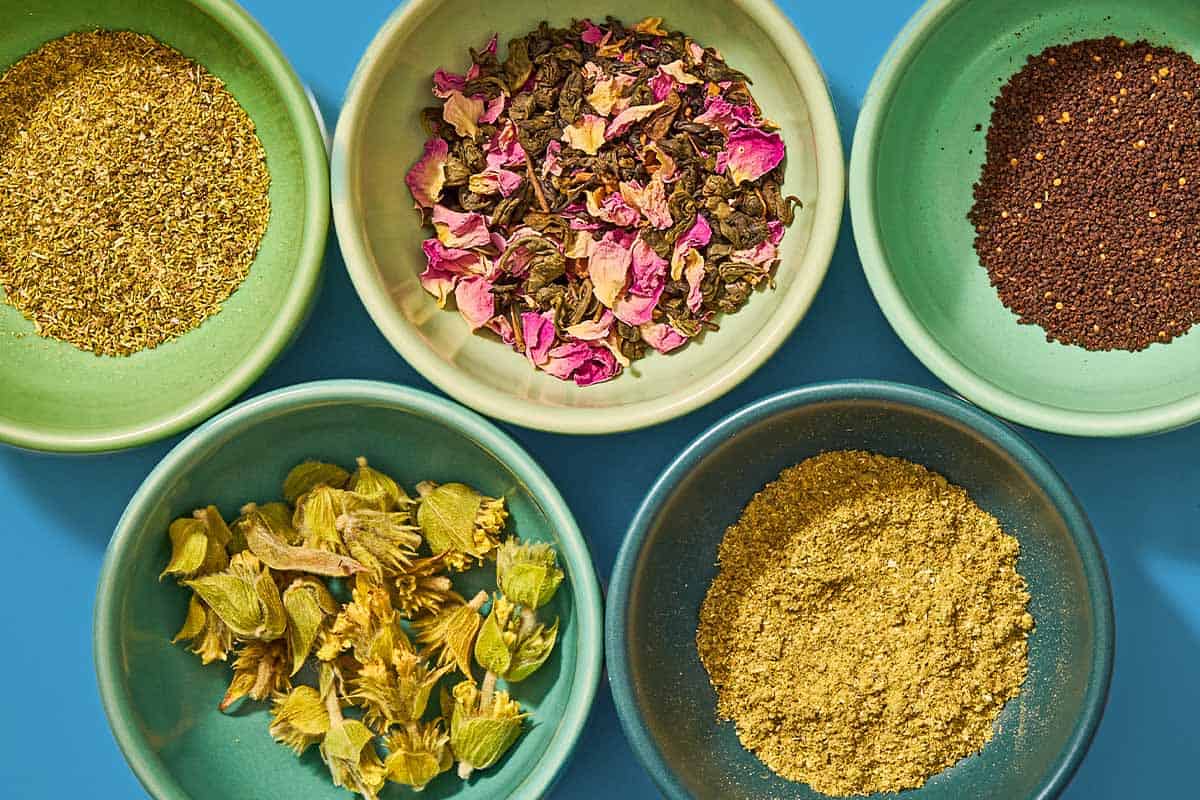
5 Health Benefits of Herbal Teas
As I mentioned in my article exploring the benefits of honey, replacing, rather than restricting, with wholesome ingredients like herbal tea and olive oil has been shown to make the Mediterranean diet more enjoyable and sustainable. Incorporating herbal tea into your daily routine is a simple and comforting way to enjoy all the potential health benefits that tea can offer, all while potentially curbing soda or alcohol cravings. Here are 5 more reasons to enjoy herbal tea:
- Provides a Source of Antioxidants: Different kinds of tea can provide antioxidants such as polyphenols and flavonoids that help fight oxidative stress and protect from chronic diseases. Good examples include:
- Chamomile provides flavonoids.
- Ginger, like our lemon ginger tea recipe, provides gingerol, a polyphenol that provides ginger’s signature warmth.
- Hibiscus, as seen in Egyptian Karkade, provides anthocyanins, a flavonoid which gives the tea its signature color.
- Supports Digestion: Certain herbs, such as fennel, ginger, and peppermint, may aid digestion and gut health due to their antiviral and antimicrobial properties.
- Helps to Reduce Blood Pressure: Herbal teas, such as hibiscus tea, have been shown to help lower blood pressure, improve circulation, and support cardiovascular health.
- Promotes Stress Relief and Relaxation: Herbs like lavender and lemon balm are known for their calming properties and support for mental well-being. In fact, according to research published in the National Library of Medicine, drinking lavender herbal tea may help reduce symptoms of depression and anxiety.
- Supports the Immune System: Echinacea herbal tea is often celebrated for its potential immune-boosting properties. Traditionally used to help the body fend off colds and other minor infections, echinacea has been shown to decrease the incidence and the duration of the common cold.
What is Herbal Tea?
Herbal teas are made from tisanes, meaning blends or infusions of dried flowers, fruits, herbs, or spices. Most are naturally caffeine-free.
Traditional tea, on the other hand, is made by pouring hot water over the leaves of the Camellia Sinensis plant. Popular teas include black, white, green, and oolong teas. These teas contain caffeine.
With so many varieties, herbal tea suits every mood and moment. Need something soothing? Chamomile or lavender can help you unwind. Craving a little refreshment? A cup of mint tea will do the trick. Whether hot or cold, there’s always a perfect blend to match the moment.
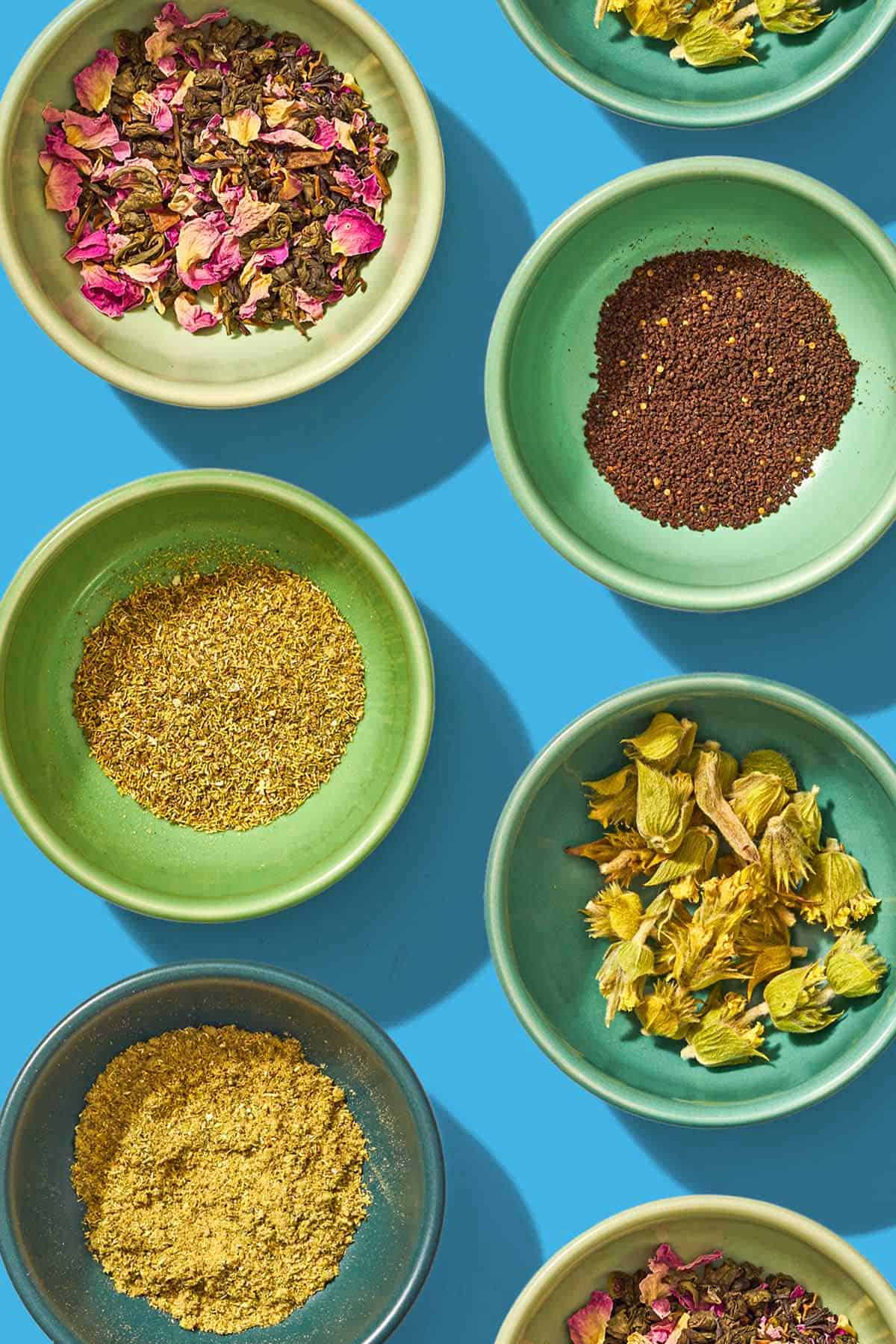
How to Incorporate Herbal Tea into the Mediterranean Diet
While many herbal teas offer health benefits, research is still exploring their effects. Consuming them in moderation and with medical guidance is recommended, especially for those with health conditions. Choose varieties without added sugars or additives, and remember that herbal tea is not a substitute for medical treatment. Here are three herbal tea recipes to try:
- Karkade (Hibiscus Tea): Egyptian tea made from hibiscus. Tart, zippy, and refreshing!
- Lemon Ginger Tea: Cozy and spicy, this fresh tea is especially soothing with a drizzle of honey when you have a sore throat.
- Greek Mountain Tea: An ancient tea made from the polyphenol-rich Sideritis plant.
- TRY IT: Grab a tea pot and strainer, and try traditional on-the-vine Greek mountain tea at our shop.
How to Store Herbal Tea
Store tea in a cool, dry, dark place in an airtight container. Tea easily absorbs smells, so it’s best to store it separately from aromatic ingredients like coffee and spices. You can invest in a fancy storage jar that protects the tea from light and smells, but you can also just be mindful of where you stash your tea.
Try These Tea Recipes
Browse all Mediterranean recipes.
Visit Our Shop.
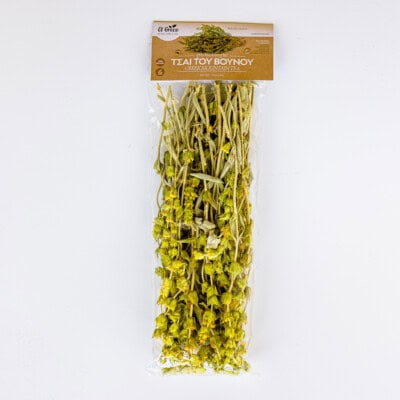
Try Our Authentic Greek Mountain Tea!
100% natural tea made from the ancient Sideritis herb and dried whole for optimal potency.



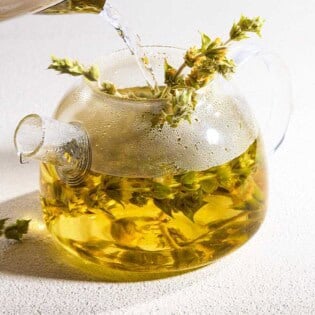
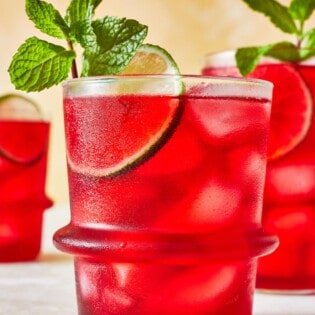
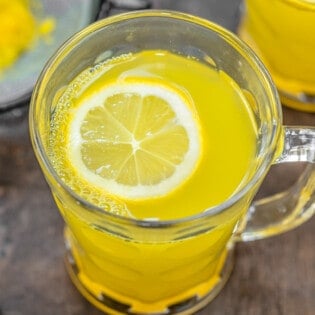
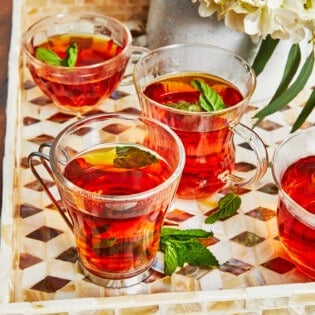
What are the spices using to make Lahm ajin to make very good fragrance
Smells from Two blocks away?